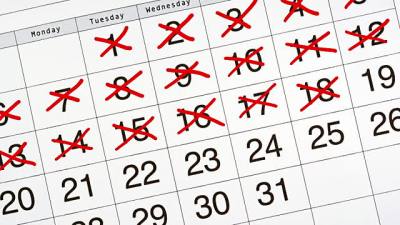
Chris is making me do this. Ruth is in on it too, but it’s mostly Chris’ fault. She’s the one who invited me to join the Writer’s Group. The Writer’s Group. It sounded so prestigious, so intellectual and exclusive. I envisioned us sitting out in a rosy courtyard, poring over rough drafts of our future bestsellers, offering praise and constructive criticism with slightly British accents. Meanwhile, white wine spritzers and finger sandwiches would be served by a handsome college kid in khakis and white polo shirt who was just trying to earn a few extra bucks. “Keep ‘em coming, Trevor,” we’d call after him as he retreated to the kitchen. Then we’d giggle and whisper about his cute butt.
Imagine my surprise when I realized there were no accents, no sandwiches, and no cute butts—present company included. But it is a group and there is writing, so I suppose the name “Writer’s Group” is apropos. And, as to be expected, there are also deadlines. Sometimes it’s the first Tuesday of the month or the first Wednesday, although sometimes it gets rescheduled for the following week or the following one or maybe even the one after that if someone needs to take her husband to the doctor or someone else really really needs to go to the beach. Regardless of where it falls on the calendar, D-day looms. It hovers overhead, watching my every move and offering unsolicited advice: “Why are you reading? You should be writing…Why are you watching TV? You should be writing…Why are you staring off into space? You should be writing.” Ugh, I hate that guy.
I have a lot of experience with procrastinating, so—not to brag or anything—I’m quite good at it. My ultimate procrastination story was writing a 20-page paper in 12 hours in my last semester of college. I had done all the research and outlining for it, but I could not make myself sit down and turn any of it into sentences until the night before it was due. The Catch-22 of it is that I received an “A” on it, which only further proved to me that last-minute efforts were good enough, so why change?
The key, of course, is knowing your limits. I had a friend in college who (more than once) put off reading a novel until the day before the final. He would take the book and go into the study room around 10:00pm, fully believing he could make it through all 300 pages and understand every word of it in time for his 8am exam. By midnight his eyes would start to droop. He’d stretch out on the floor under the table, lying on his stomach, staring hard into the open paperback. It was only a matter of time before he was passed out, face down somewhere around page 90. Poor guy didn’t know his limits. Rookie mistake.
The other key to successful procrastination is weighing the consequences. Even though I knew my 20-page paper was a large part of my grade, I also knew I had a good-sized cushion going into it, so I could turn in something pretty mediocre and still squeak by. However, other things carry greater consequences. I never procrastinate in paying bills, for example. I enjoy electricity and water and shelter, so the consequence of not having them is a great motivator for keeping ahead of those due dates. On the other hand, if I were to show up to the Writer’s Group empty handed, I presume the punishment would be minimal—brief chastisement and an empty threat to cancel my membership, perhaps—amounting to nothing more than a slap on the wrist. After being told politely to “try to do better next time”, I’d nod meekly and vow not to let it happen again, knowing full well that when I sat down to get a jump on things I’d look at the calendar and see that I still had plenty of time.
Plenty of time…
.
.
.
Keep ’em coming, Trevor.
.